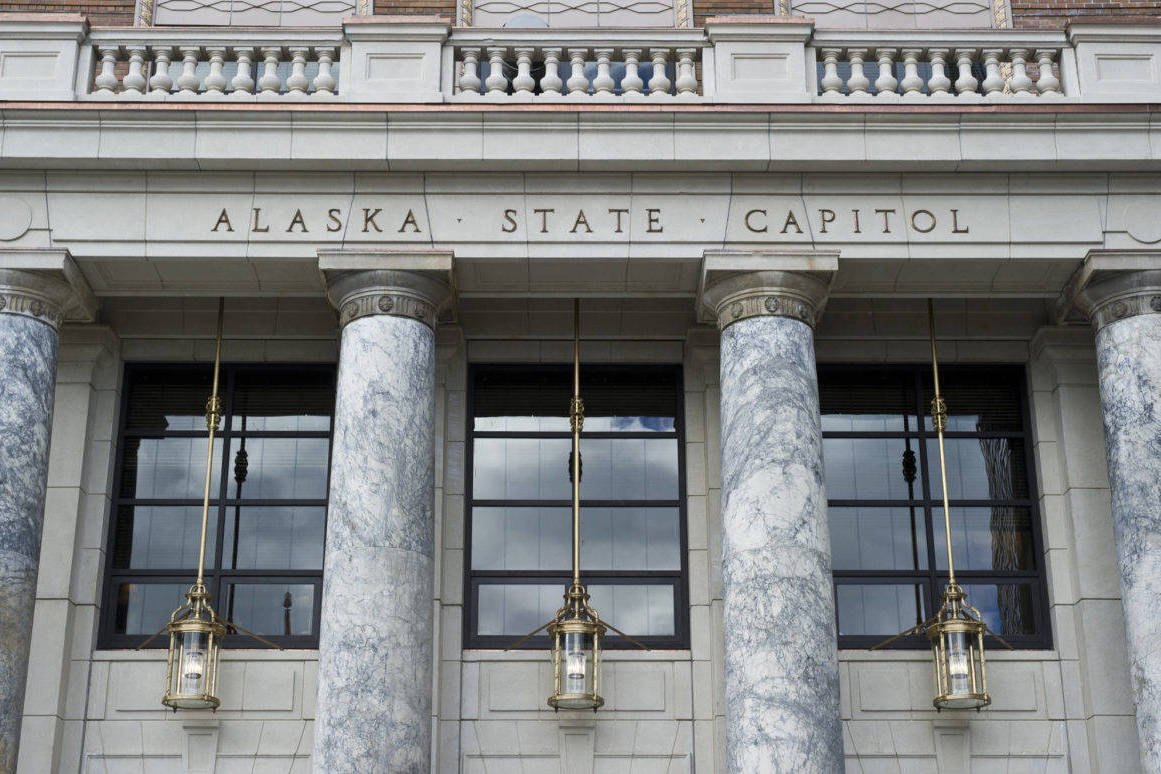JUNEAU — Under a proposed rewrite of state crime laws, Alaska legislators would require the courts to review for a federal database system records dating to 1981 for individuals who have been involuntarily committed and would be restricted from owning firearms.
While debates over guns elicit fears of erosions of the Second Amendment right to bear arms, this provision has generated few waves. Republican Gov. Mike Dunleavy’s administration is pushing it as a way to prevent future violence or suicides. National Rifle Association spokesman Lars Dalseide by email said that group “has always called for the submission of all relevant records” to the system “and that position hasn’t changed.”
Some Republicans in the state Legislature have expressed support. Rep. Chuck Kopp, a former police officer, said he supports Second Amendment rights but said there’s a balance in wanting to ensure the database has that information to improve the safety of the general public.
The state in 2014 began requiring the courts to provide to the Department of Public Safety information on involuntary commitments. It also set out a process by which affected individuals could seek to have their gun rights restored. The law’s sponsor, Republican Rep. Lance Pruitt, at the time noted Alaska’s “steadfast tradition of the right to responsible firearm ownership,” and he saw providing relevant information to the database as a key part of that responsibility.
“There are some people who might find themselves surprised by it, and that part is my concern,” he said of the new proposal Thursday. But the benefits “probably outweigh those other concerns. But I don’t say that without recognizing that there could be some people who were affected.”
That law was part of a national trend to bolster information provided to the FBI’s National Instant Criminal Background Check System, which is used by licensed gun sellers to determine if prospective buyers are eligible to purchase firearms. The system relies on available criminal history and mental health records.
“The databases are only as good as the information that’s in them,” said Kelly Howell, special assistant to Alaska’s public safety commissioner, adding later: “I just really feel strongly that this is something the state can do to help prohibit and prevent some violence and some sad incidents in people’s lives.”
The administration proposes going back to 1981 because it says that’s when the state’s civil commitment laws were passed. Alaska also has high rates of suicide.
From October 2014 through the end of last December, Alaska listed 432 individuals as prohibited from possessing a gun because of involuntary commitments or court orders of mental illness or incompetence, according to FBI data. By comparison, the state reported 4,458 records for individuals barred from having guns because of felony or certain serious misdemeanour convictions during the same time period.
Some states, like Montana and Wyoming, show small numbers of people across all categories who would be prohibited from having a gun. Nationally, FBI data shows about 5.7 million active records related to the mental health category, as of the end of 2018.
It’s unclear how many people would be barred from buying guns if the provision passes in Alaska. The court system estimates it would need to research 21,637 cases filed before it switched to electronic record-keeping — including files stored on microfilm — to provide to the Department of Public Safety court orders related to involuntary commitments and any subsequent judicial orders finding a person is unlikely to be a danger to themselves or others and able to possess a firearm.
Mark Regan, legal director of the Disability Law Center of Alaska, cited concern with reaching so far back.
“What you’re looking at are people not knowing that there would be these consequences who’ve been in the civil commitment process at times beginning in 1981,” he said. “It might well be that there would be people who would have contested the civil commitment more vigorously if they had known that 20 years later or 30 years later they would be reported to the database.”
He acknowledged people could petition the courts but questioned how well known that process is.
Lindsay Nichols, federal policy director with the Giffords Law Center to Prevent Gun Violence, said other states have passed laws calling for prior-year commitments to be added to the database, such as Texas and Minnesota. According to the centre, federal law does not require states to submit information to system, making participation voluntary.
Howell said the department would seek federal grant funding to help the courts if the expanded review is approved. The court estimates the cost at about $140,000.
“If someone is determined, there are other ways they can potentially obtain firearms. But this is one thing that we can and should do to ensure that those who shouldn’t have firearms are prohibited from purchasing and possessing them,” she said.
• By BECKY BOHRER, Associated Press

